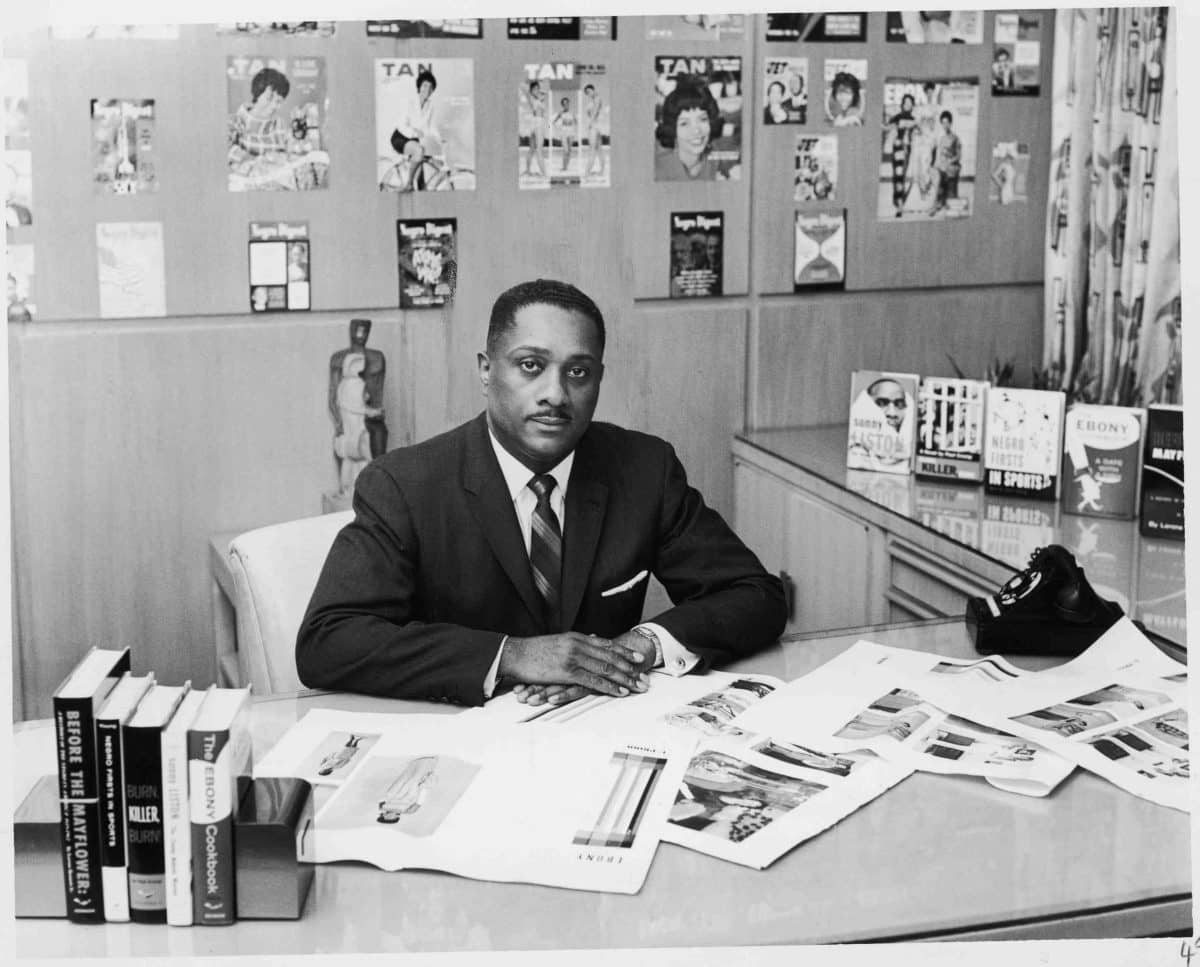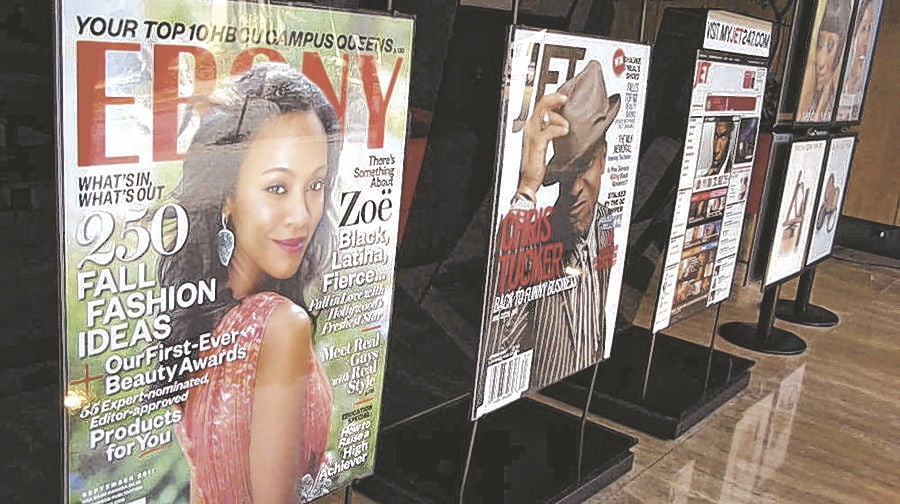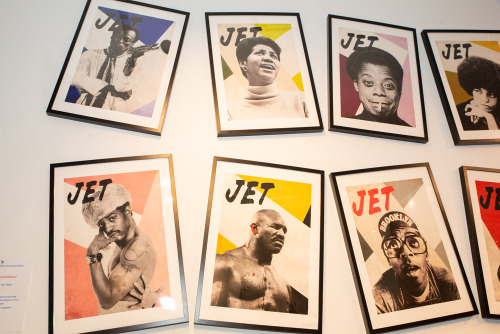John H. Johnson is widely regarded as the most influential African-American publisher in American history.
By the time he passed away on August 8, 2005 aged 87, Johnson had accompanied then-Vice President Richard Nixon to nine African nations in 1957 as well as Russia and Poland. He was sent to the Ivory Coast in 1961 by John F. Kennedy as Special Ambassador while President Johnson settled on him once again as special ambassador to Kenya during the presidential inauguration.
He was also appointed to the Commission for the Observance of the 25th Anniversary of the United Nations by President Nixon.
But how did this African-American in racist America rise in stature that presidents couldn’t help but fall on him to represent them in foreign lands?

Johnson was born on January 19, 1918, in Arkansas City, Arkansas, to Leroy and Gertrude Johnson Williams. His family settled in Chicago after visiting the city during the 1933 World’s Fair in a move to escape poverty during the Great Depression. Failing to find work, Johnson’s mother and stepdad applied for welfare, which they received for two years until Johnson’s stepfather was finally able to obtain a position with the Works Progress Administration (WPA) and Johnson himself secured a job with the National Youth Administration (NYA). Johnson’s father had died in a work related accident.
He later became an honor student at Du Sable High School in Chicago, where he was managing editor of the school paper and business manager of the yearbook. Those experiences influenced his choice of journalism as a career. His classmates at DuSable included Nat King Cole, Redd Foxx and future entrepreneur William Abernathy strengthening his resolve to amount to something, especially coming from a rural background.
While studying at the University of Chicago and Northwestern University, Johnson worked for a life insurance company that marketed to African American customers. While with Supreme Life Insurance Company, he was given the job of compiling weekly news clippings for his boss, which eventually gave him the idea of a magazine for blacks. “In 1942 he began publication of the Negro Digest. Its first issue sold some 3,000 copies, and within a year the monthly circulation was 50,000. From that beginning, Johnson launched Ebony, a general-interest magazine catering to an African American audience, in 1945. Ebony’s initial pressrun of 25,000 copies was completely sold out. By the early 21st century it had a circulation of some 1.7 million.”

He began the business with a $500 loan against his mother’s furniture and $6,000 raised through charter subscriptions for the Negro Digest which later became Black World.
In 1951, Johnson Publishing expanded again, with the creation of Jet, the world’s largest African American news weekly magazine (1951–2014).

His firm, Johnson Publishing Company, later diversified into book publishing, radio broadcasting, insurance, and cosmetics manufacturing. In the 1980s Linda Johnson Rice, his daughter, began assuming management of the company. At one point, Johnson’s net worth was estimated at $150 million.
Johnson’s expansion drive saw him own Fashion Fair Cosmetics, the largest black-owned cosmetics company in the world, Supreme Beauty Products in addition to producing television specials. Johnson also later became chairman and CEO of Supreme Life Insurance, where he had begun his career when its president Harry Pace took a chance on him.
“Johnson received numerous honors and awards for his achievements, including the National Association for the Advancement of Colored People’s Spingarn Medal in 1966 for his contributions in the area of race relations. In 1951, he was the first African American to be selected as Young Man of the Year by the United States Chamber of Commerce. In 1972, he was named publisher of the year by the major magazine publishers in the United States. He received a Candace Award for Distinguished Service from the National Coalition of 100 Black Women in 1989. In 1993, to celebrate the 50th anniversary of his publishing company, Johnson published his autobiography, in which he states “if it could happen to a Black boy from Arkansas it could happen to anyone.”

“In 1995, Johnson received the Communication Award on the occasion of Ebony magazine’s 50th anniversary. Alfred C. Sykes, chairman of the Center for Communication, and president of Hearst Media Technology, said “Mr. Johnson is a role model for many young people today, an example of how hard work, commitment and belief in oneself can lead to outstanding achievement. He rose from disadvantaged circumstances to achieve success in both business and national service during a time when great obstacles were placed in his path.””
In 1996, President Bill Clinton awarded Johnson with the Presidential Medal of Freedom, the nation’s highest civilian honor. He also received more than 30 honorary doctoral degrees from institutions across the country, and served as a board member or trustee of numerous businesses and philanthropic and cultural organizations.

In 1982, Johnson became the first African American to appear on the Forbes 400. In 1987, he was named Black Enterprise Entrepreneur of the year. Johnson also won the Spingarn Medal for being the Most Outstanding Black Publisher in History Award from the National Newspaper Publishers Association.
Johnson Publishing has also been named the number one black business by Black Enterprise four times. Johnson’s wife, Eunice, and daughter, Linda Johnson-Rice, continued to retain control of Johnson Publishing till his widow passed in 2010.

On January 31, 2012, the United States Postal Service honored John H. Johnson with a commemorative stamp as the newest addition to its Black Heritage Series. Johnson was inducted into the Chicago Literary Hall of Fame in 2013.










